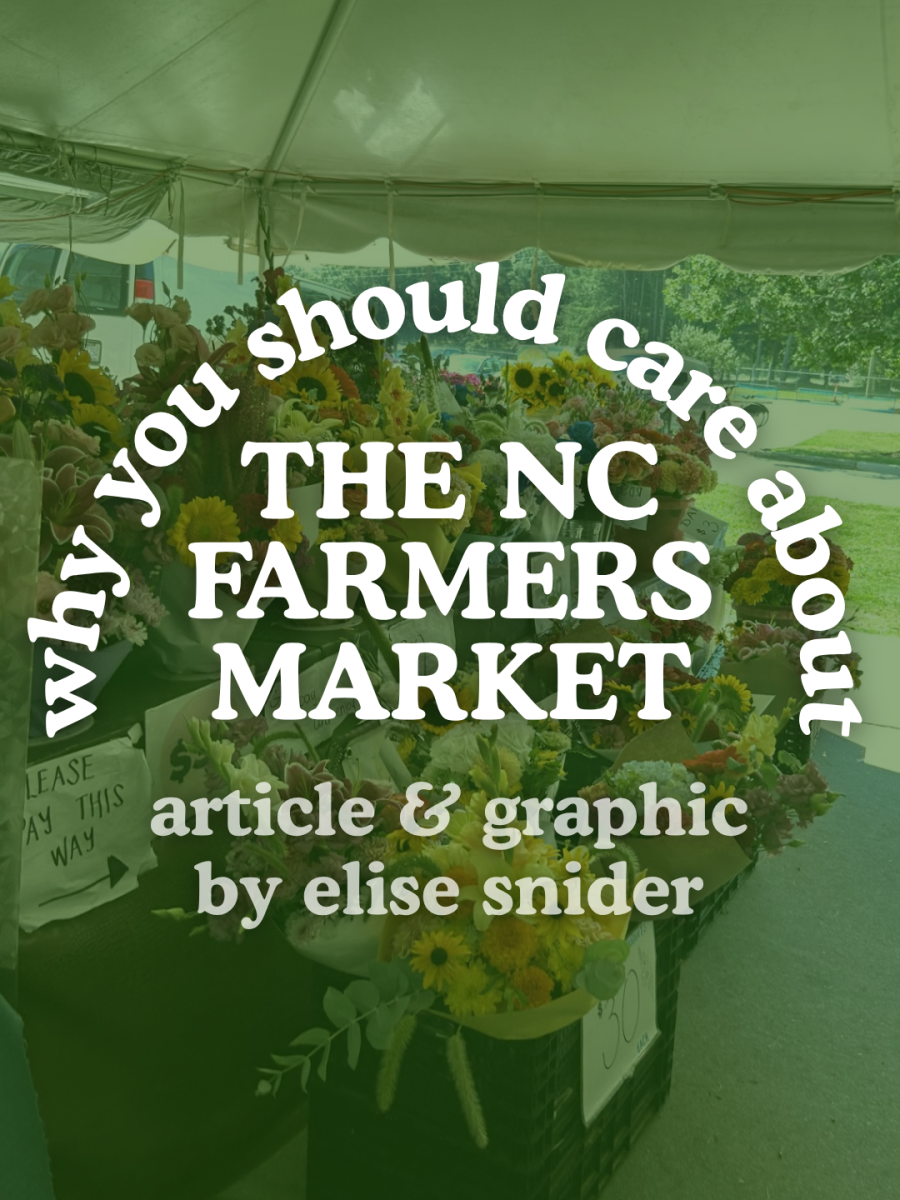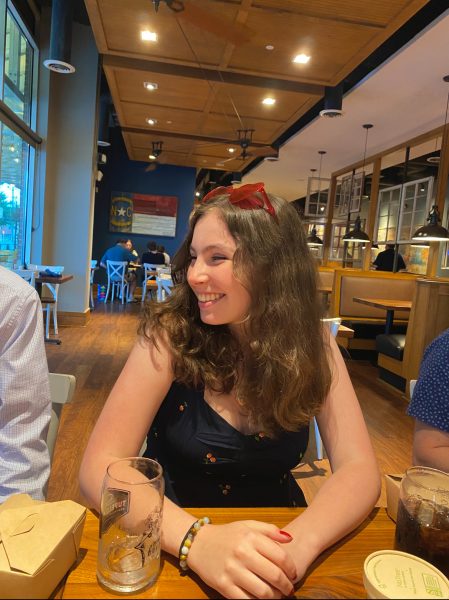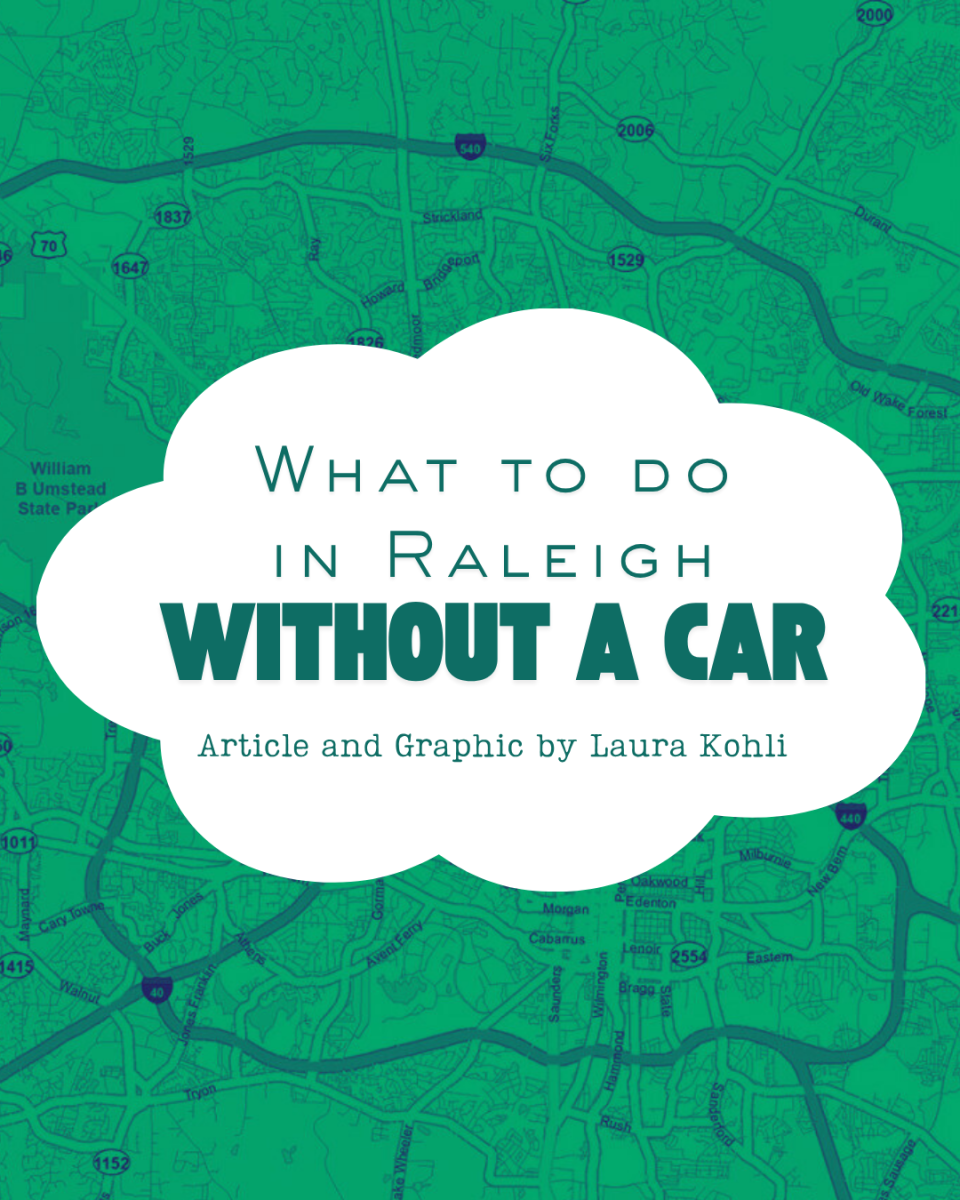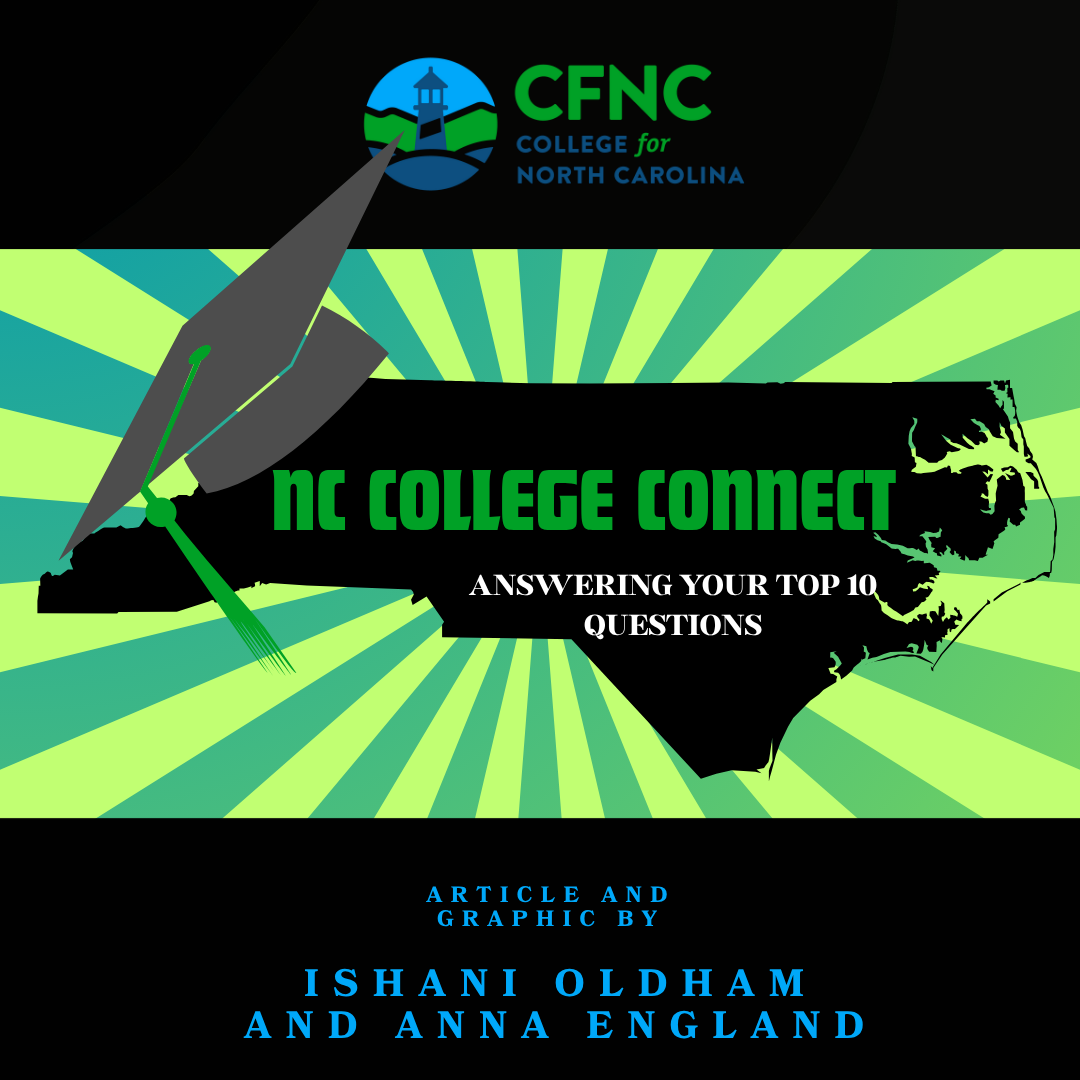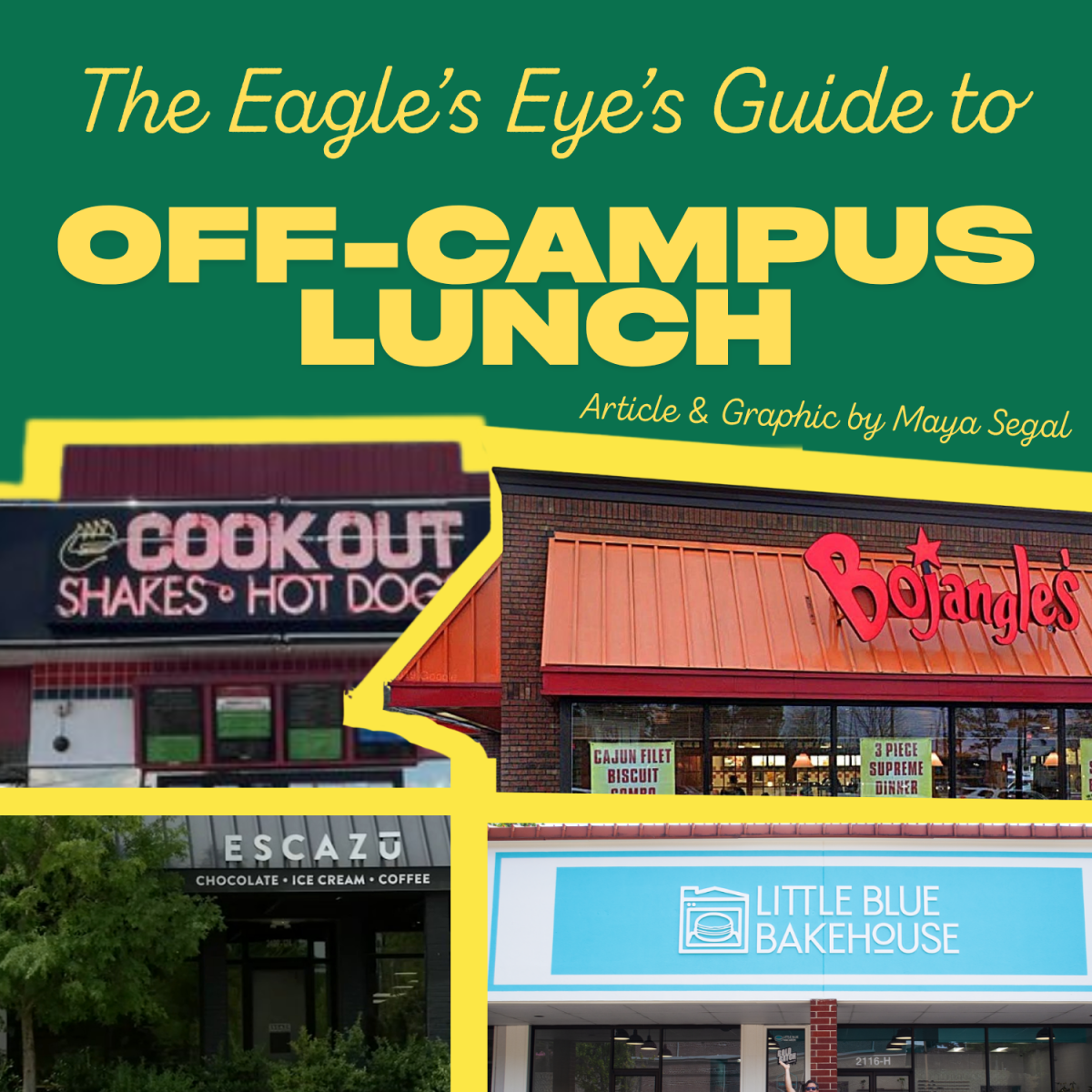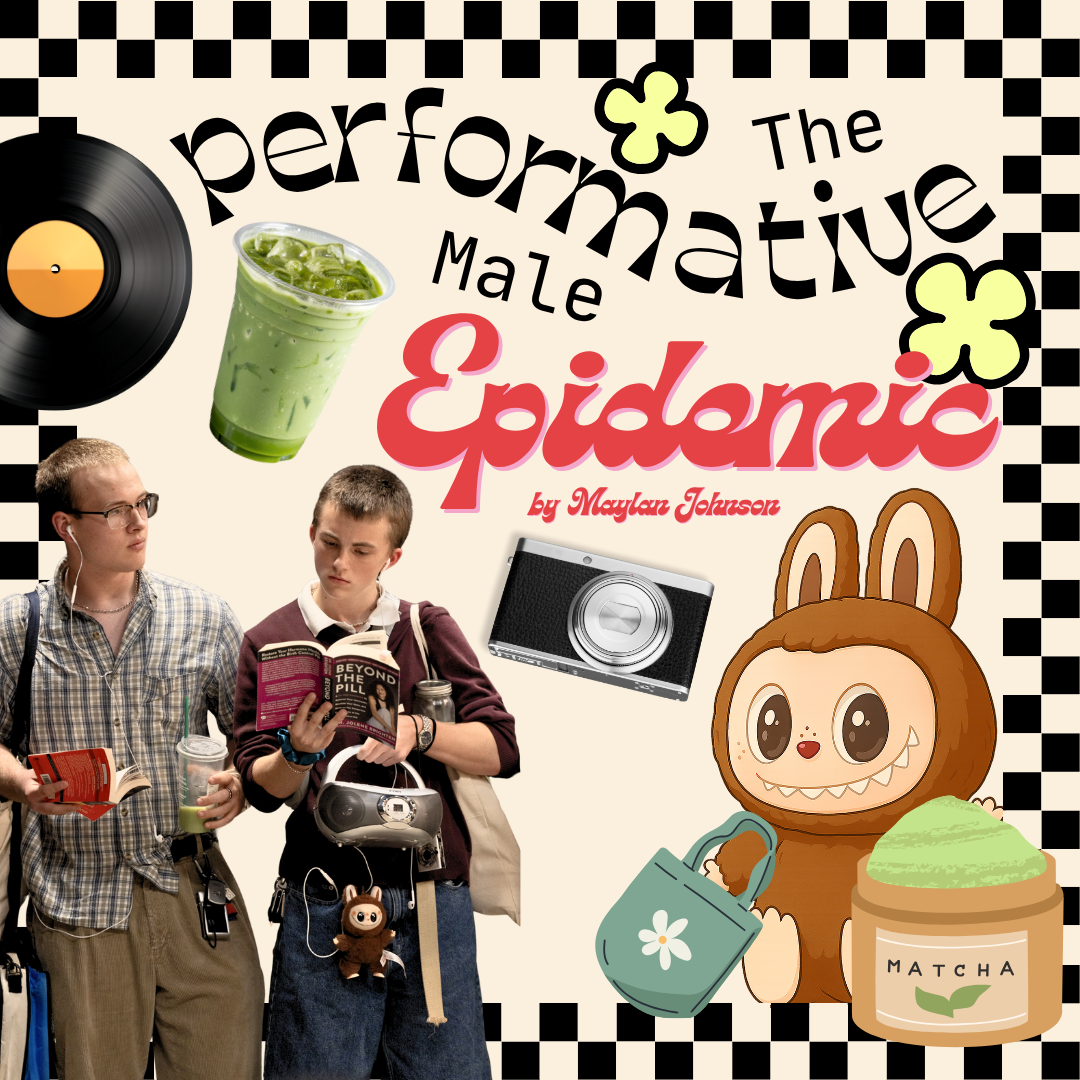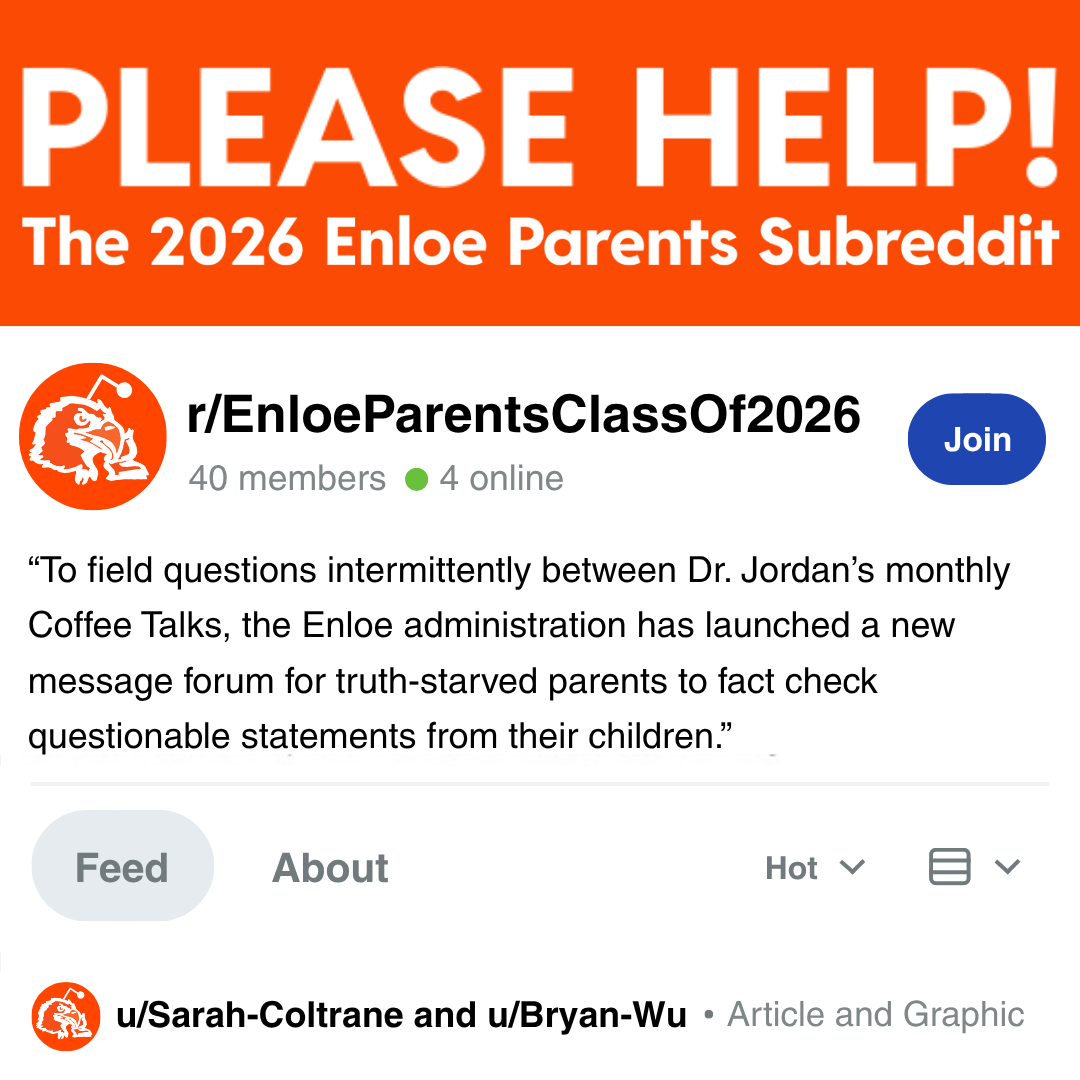Crates full of pumpkins of every size line the entrance to a large, open-air market. A little girl with a ghost on her shirt runs to meet up with a friend, who is carrying a warm apple cider. The leaves are kissed a fiery red, and best of all, the temperature has finally dropped below 75 degrees.
This is the North Carolina Farmers Market, a three-building space for farmers, artisans, and craftspeople from all across the state to share fresh food and represent some of NC’s unique heritage and traditions.
“All of us have to eat, all of us have to wear clothes, all of us live in homes that keep us warm, and all of those things are part of agriculture,” said Lily Frankowski, the Future Farmers of America (FFA) student advisor at Millbrook High School and the FFA Northern Wake Federation president. Frankowski often volunteers on the farms of vendors at the farmers market through Millbrook FFA. “A big thing for our FFA is making the connection … that FFA and agriculture isn’t just [about] being a farmer, it’s environmental engineering. It’s working on food science. There’s all these different parts of agriculture … this isn’t just farming and digging in the dirt.”
Wake County students who generally live in more urban environments might not have a great idea of where their food actually comes from. “Millbrook [FFA] spends a lot of time at the farmers market. We go and help out there quite a bit, and we do a lot of field trips, just to kind of bring the bond between city kids and some more rural farmers,” said Frankowski.
But why should students care about where their food comes from, especially if the grocery store is more convenient? “The farmers market is mainly small scale places … It’s a good way for those farms to have that outreach they might not have in their communities. So by supporting that, we’re resisting the larger farming corporations and the larger businesses that are taking over these smaller farms [that] are typically more sustainable,” said Frankowski.
There’s a better “carbon footprint with small farms,” said Srija Dovala, Enloe FFA President. She believes that education about agriculture is important for teens. “The NC Farmers Market is really great. It’s [a] great way for teens to see where their food comes from, meet the farmers that grow it, and also learn what’s in season.” Outside of environmental impact, Dovala echoed a similar sentiment to Frankowski. She stated that, “agriculture impacts everyone, not just farmers.”
Outside of FFA, Frankowski loves visiting the market on her own time with friends and family. “Every year we have our little family Fall Festival, and we go out to the farmers market. They have pumpkins, they have mums, and they have all these cute little things … The fall produce is out, and there’s so much apple cider, it’s a really great way to connect with your family and connect with your local farmers.”
If you’re interested in supporting the farmers market, but don’t know where to start, grab a bite to eat! There’s a place for everyone at the Farmers Market, but some of their most famous snacks are from the over 30-year-old Market Bakery and charming Annelore’s German Bakery. The Market Bakery is famous for their lemonade with all kinds of berry and citrus additions, perfect for anytime of year. Annelore’s German Bakery sells a variety of fresh baked goods, from scones to danishes to pretzels, with a kind and welcoming staff. Even getting a sweet treat can be a good way to learn more about your community.
For those interested in getting involved in agriculture beyond the NC Farmers Market, Dovala explained that “a great way is to join FFA, take agricultural classes, [or] maybe learn to grow something yourself … volunteer at a [local] f00dbank.” From FFA to Food Arc, there are many Enloe student organizations for those willing to dedicate their time to learning more about agriculture.


